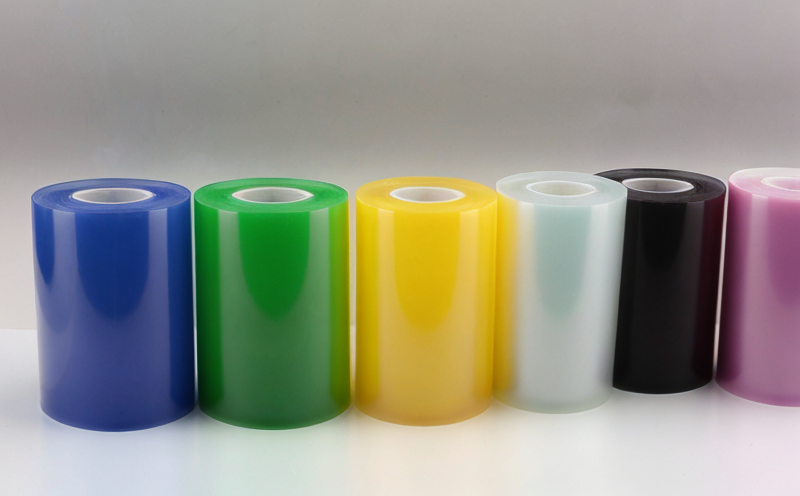ISO 4593 Thickness Measurement Testing of Plastic Films
The ISO 4593 standard provides a comprehensive framework for accurately measuring the thickness of plastic films, ensuring that products meet specified dimensional tolerances. This service is critical in quality control and product development processes to ensure consistency and reliability.
In the manufacturing of plastic films, precise measurement of film thickness is essential for maintaining uniformity across batches and ensuring compliance with industry standards and customer specifications. The ISO 4593 methodology offers a standardized approach that enhances comparability between different laboratories and facilities.
Our team specializes in conducting this test according to ISO 4593, which involves the use of micrometers or other precision instruments calibrated for thickness measurement. Specimen preparation is crucial; samples are typically cut from the film roll using a precise cutter to ensure uniformity and minimize edge effects that could skew results.
The testing process begins with careful selection of the sample location, avoiding areas prone to defects like tears, folds, or variations in thickness. Once prepared, the sample is measured at multiple points along its length and width, ensuring an accurate representation of the film's thickness profile.
For quality managers and compliance officers, understanding these nuances can help in identifying potential issues early on, thereby reducing rework and waste. R&D engineers benefit from this service by gaining insights into how variations in thickness might impact product performance, enabling them to make informed decisions during design phases.
The results of ISO 4593 testing are vital for maintaining consistency in production processes. By adhering strictly to the standard's methodology, we ensure that every measurement is accurate and reliable, providing confidence in the quality of your plastic films.
Scope and Methodology
| Aspect | Description |
|---|---|
| Measurement Instrument | Micrometers or precision calipers are used for measuring the thickness of plastic films. These instruments must be calibrated regularly to ensure accuracy. |
| Sample Preparation | Samples are cut from the film roll using a precise cutter, ensuring uniformity and minimizing edge effects that could skew results. |
| Measurement Points | The sample is measured at multiple points along its length and width to obtain an accurate representation of the film's thickness profile. |
| Data Collection | All measurements are recorded, including the location on the film from which they were taken. This data helps in identifying any variations or defects. |
The process adheres strictly to ISO 4593 guidelines, ensuring that all measurements are consistent and accurate. Our team of experts ensures that each step is followed meticulously, providing reliable results every time.
Industry Applications
| Industry Sector | Application |
|---|---|
| Packaging | Ensuring the integrity of packaging materials by verifying thickness specifications. |
| BioMedical Devices | Verifying the thickness of components used in medical devices to ensure safety and functionality. |
| Film Manufacturing | Monitoring production processes to maintain consistent film thickness across batches. |
| Consumer Goods | Guaranteeing product quality by adhering to specified thickness standards for consumer goods packaging. |
The precision and reliability of ISO 4593 testing are paramount in these sectors, where even small variations in film thickness can have significant impacts on performance or safety. By leveraging this service, clients can ensure their products meet the highest standards of quality and compliance.
International Acceptance and Recognition
The ISO 4593 standard is widely recognized across various industries for its reliability and consistency in measuring plastic film thickness. This international acceptance ensures that results obtained from our testing are valid and comparable globally.
Our commitment to adhering strictly to the ISO 4593 methodology guarantees compliance with global standards, which is crucial for companies operating internationally or dealing with multinational clients. The use of this standard also enhances trust between suppliers and customers by providing a common reference point for quality assurance.
The widespread adoption of ISO 4593 in various sectors underscores its importance as a benchmark for precision measurement. By offering this service, we contribute to maintaining the highest standards of product quality worldwide.





